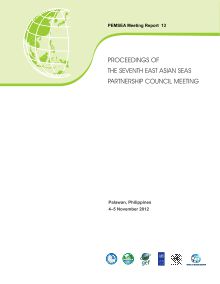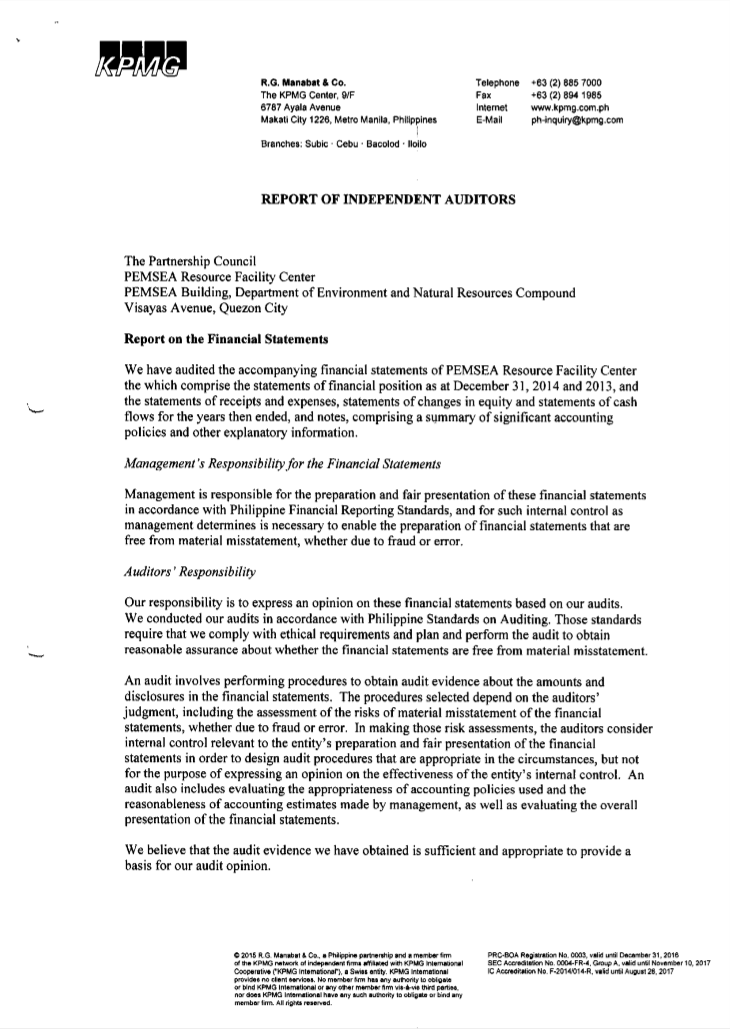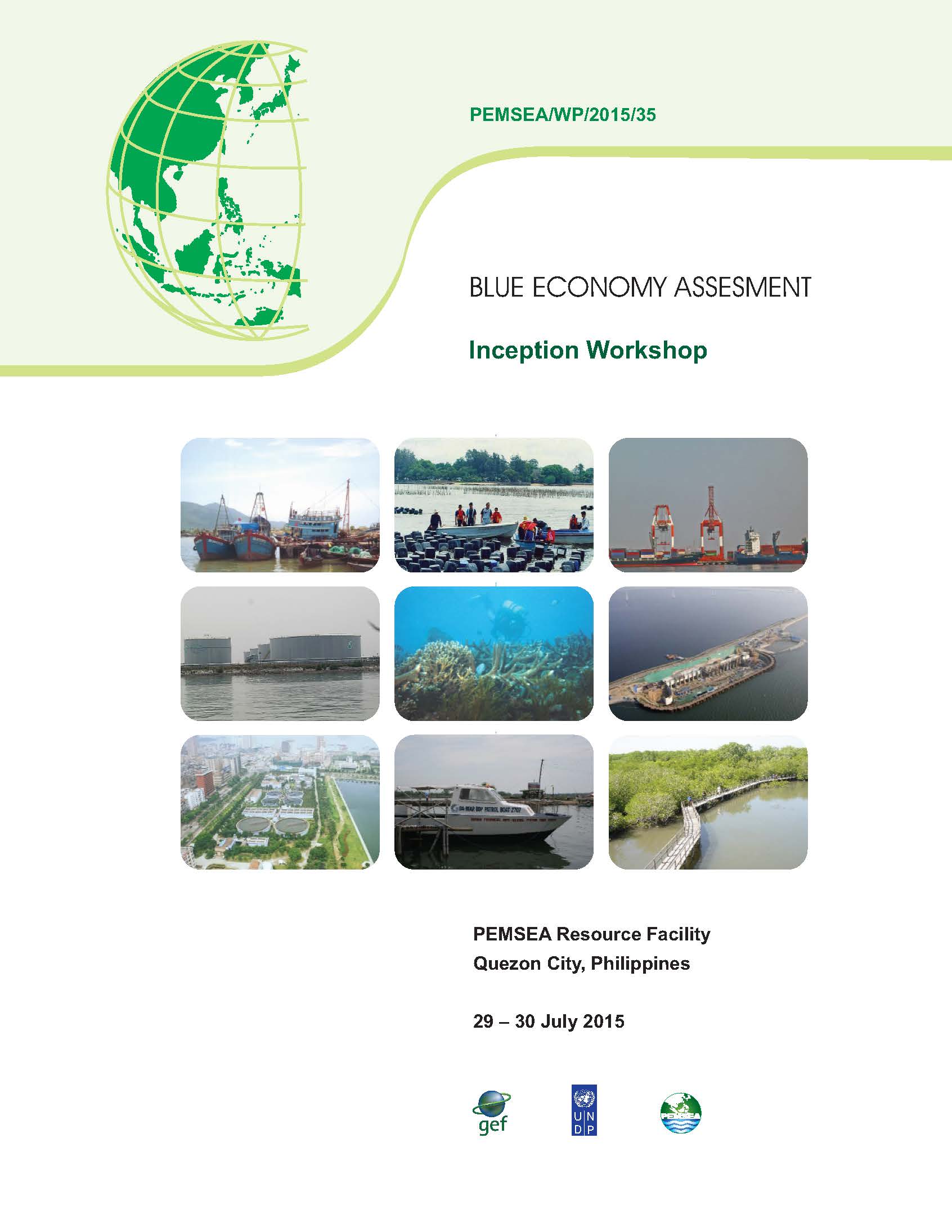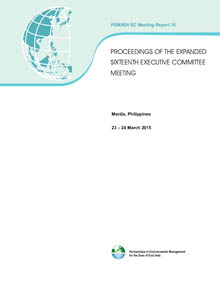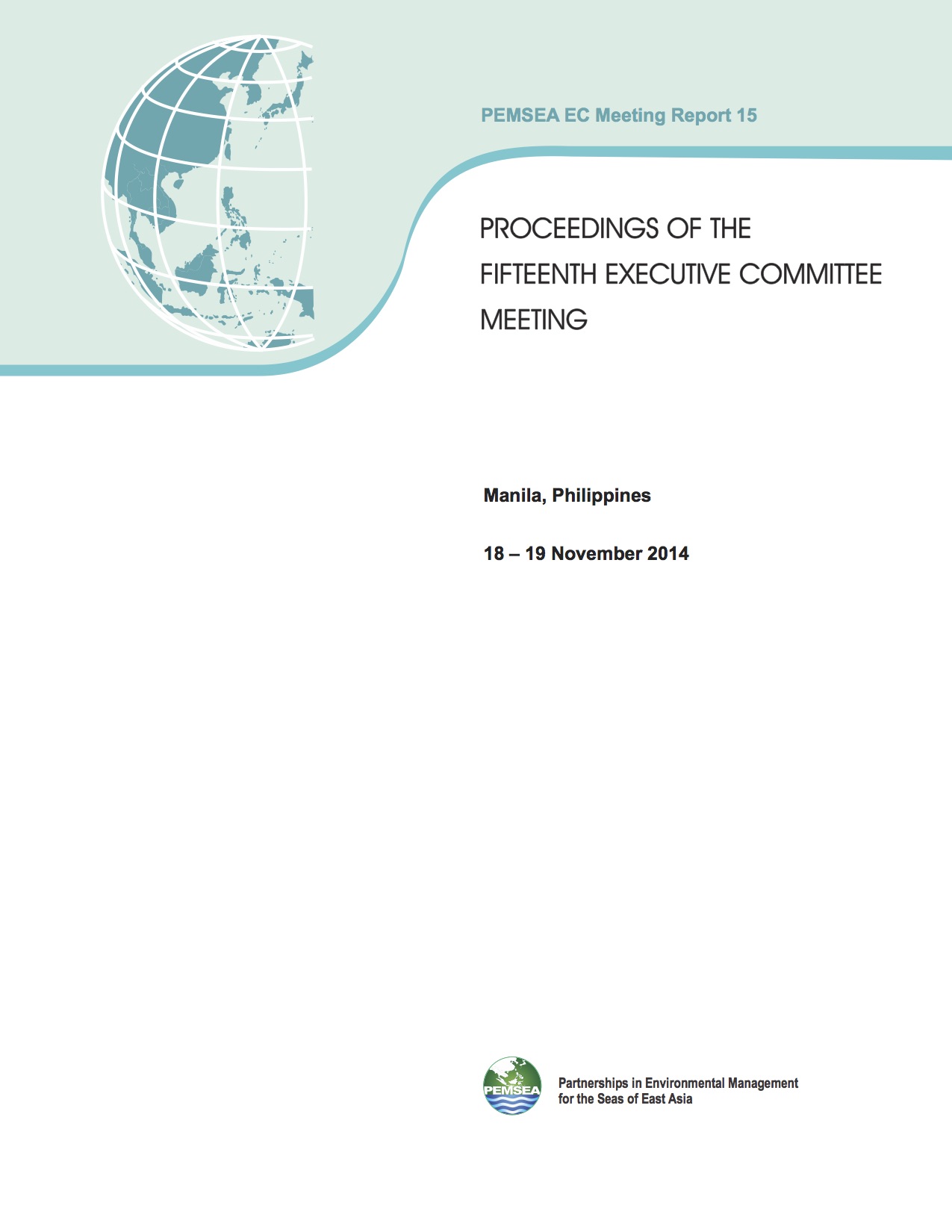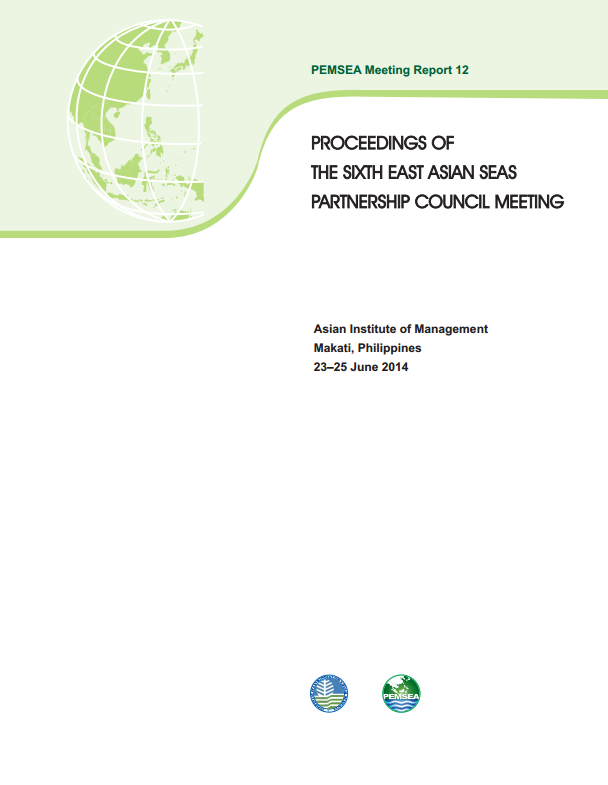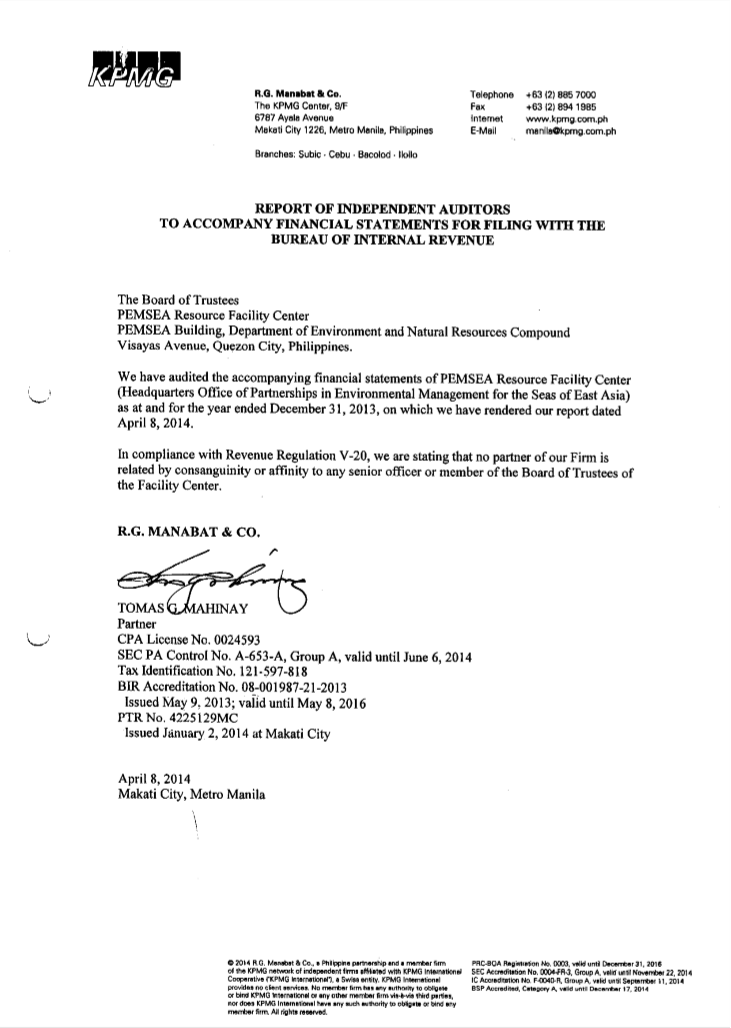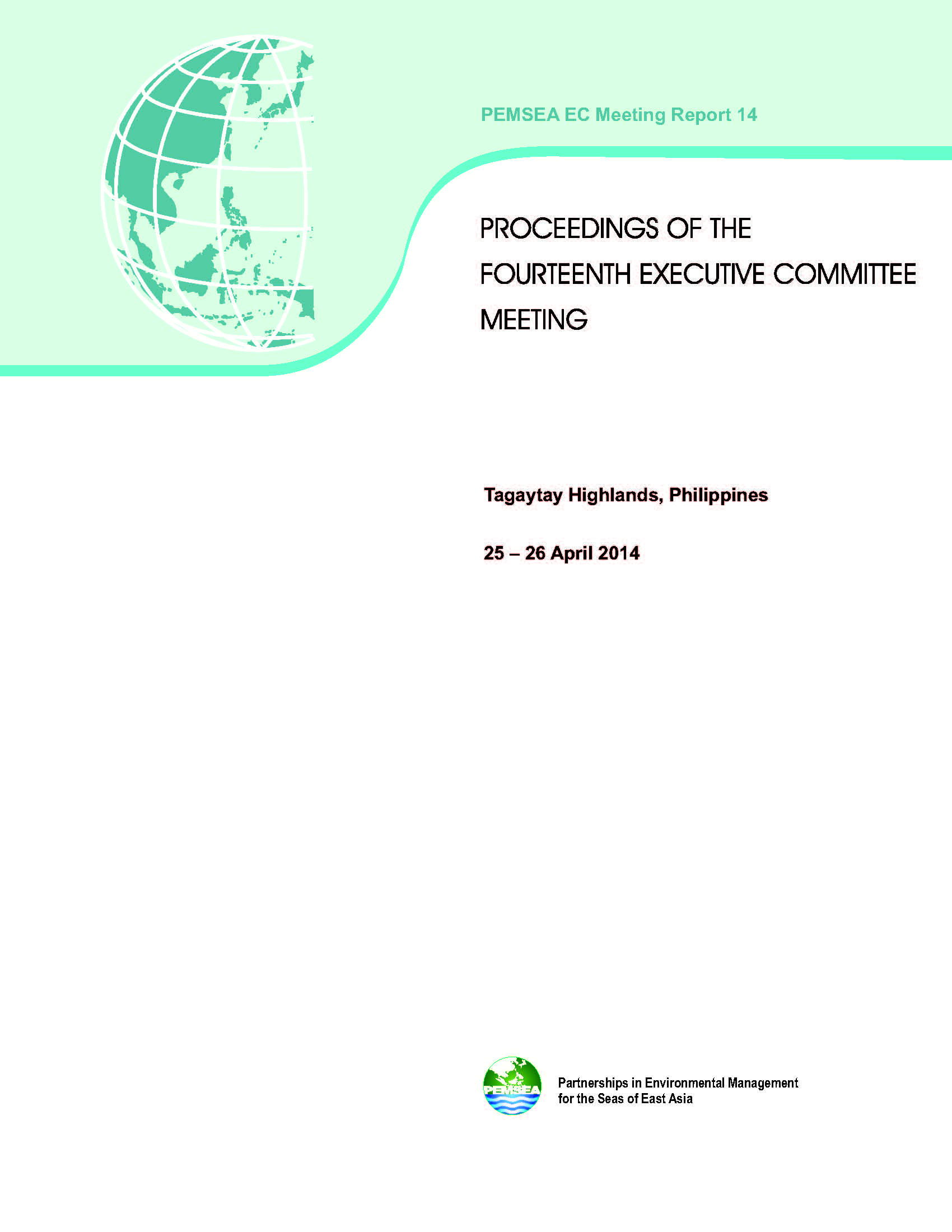
Breadcrumb
Proceedings of the Seventh East Asian Seas Partnership Council Meeting
The Seventh East Asian Seas (EAS) Partnership Council Meeting was held at the Princesa Garden Island Resort, Puerto Princesa, Palawan, Philippines from 23 to 25 June 2015. The Department of Environment and Natural Resources (DENR) of the Philippines co-hosted the Meeting with assistance from the Palawan Provincial Environment and Natural Resources Office. The Meeting was attended by representatives from 10 Country Partners and 6 Non-Country Partners. Representatives from the United Nations Development Programme (UNDP) and The World Bank participated in the Project Steering Committee Meetings for Scaling up the Implementation of Sustainable Development Strategy for the Seas of East Asia and Applying Knowledge Management to Scale up Partnership Investments for Sustainable Development of LMEs of East Asia and their Coasts, respectively.
The Partnership Council focused on the following key issues: (a) Updating of the SDS-SEA, setting of post-2015 Targets, and Ministerial document; (c) the East Asian Seas Congress and Ministerial Forum 2015; (d) PEMSEA’s progress towards becoming a self-sustaining international organization; and (e) Collaborative Planning, among others.
Proceedings of the Blue Economy Assessment Inception Workshop
The Inception Workshop on Blue Economy Assessment was held on 28-30 July 2015 at the PEMSEA Building in the Department of Environment and Natural Resources (DENR) Compound in Quezon City, Philippines.
Representatives from seven countries in the East Asian Seas (EAS) region participated, and presented ongoing efforts on blue economy in their respective countries. Group exercises focused on identifying key ocean economic activities and investment opportunities, and examining issues related to data availability and accessibility.
Experts on ocean economy, economic and environment accounting, and valuation of ecosystems and biodiversity were invited as resource persons. They also provided important insights during the discussions.
Based on the definition of blue economy (from the Changwon Declaration 2012), agreement was reached on ways to move forward with the assessment of ocean economy and innovative investments for blue economy development.
Proceedings of the Expanded Sixteenth Executive Committee Meeting
The Sixteenth (16th) Executive Committee Meeting was held at the Diamond Hotel, Manila, Philippines, on 23-24 March 2015. This publication summarizes the output of the meeting. The meeting presented and discussed the following: Updating the SDS-SEA and Setting of Post-2015 Targets; Review of Ministerial Documents: Proposed Work Plan and Schedule; Engaging PEMSEA Non-Country Partners in the Implementation of the Updated SDS-SEA and Post-2015 Targets; Fifth Ministerial Forum; East Asian Seas Congress 2015; and the Proposed Agenda for the 7th EAS Partnership Council Meeting.
Proceedings of the Fifteenth Executive Committee Meeting
The Fifteenth (15th) Executive Committee Meeting was held from November 18-19, 2014, at the Marco Polo Hotel, Ortigas and at the PEMSEA office, Philippines, respectively. The meeting presented and discussed the following: summary of major recommendations from the last Executive Committee Meeting and decisions of the 6th EAS Partnership Council Meeting; EAS Congress and Ministerial Forum 2015; proposal from the Ministry of Oceans and Fisheries of RO Korea; PRF Executive Director’s post; PEMSEA's Brand Guidance Report; implementation of the Strategy and Implementation Plan for Achieving a Self-Sustained PEMSEA; updating the SDS-SEA; among other matters.
Document Number Document Title EC/15/DOC/01a List of Documents EC/15/DOC/01b Provisional Agenda EC/15/DOC/02 Summary of Major Recommendations from the 14th Executive Committee Meeting and the 6th EAS Partnership Council Meeting and Actions Taken EC/15/DOC/03 Status of Preparations for the East Asian Seas Congress 2015 and the Fifth Ministerial Forum EC/15/DOC/06 Developing PEMSEA's Brand EC/15/DOC/07 Strategy and Implementation Plan for Achieving a Self-Sustained PEMSEA EC/15/DOC/08 Updating the SDS-SEA EC/15/DOC/08/D List of Members: Technical Working Group for the Updating of the SDS-SEA and Setting of Post-2015 Targets EC/15/DOC/04 Proposal from the Ministry of Oceans and Fisheries of RO Korea
(Document available upon request)EC/15/DOC/05 Status Report on the PRF Executive Director's Post
(Document available upon request)
Proceedings of the Sixth East Asian Seas Partnership Council Meeting
The Sixth East Asian Seas (EAS) Partnership Council Meeting was held at the Asian Institute of Management (AIM) Conference Center, Makati, Philippines from 23 to 25 June 2014. The Department of Environment and Natural Resources (DENR) of the Philippines co-hosted the Meeting. The Meeting was attended by representatives from 9 Country Partners, 11 Non-Country Partners, United Nations Development Programme (UNDP), the World Bank, and an observer from Thailand. The Partnership Council focused on the following critical issues: (a) Developing PEMSEA's Brand; (b) Updating of the SDS-SEA and setting of post-2015 Targets; (c) PEMSEA's progress towards becoming a self-sustaining international organization; (d) the East Asian Seas Congress and Ministerial Forum 2015; and (e) Knowledge Management, among others. This publication summarizes the proceedings of the meeting.
Document Number Document Title PC/14/DOC/01a List of Documents PC/14/DOC/01b List of Participants PC/14/DOC/02a Provisional Agenda PC/14/DOC/02b Annotated Agenda PC/14/DOC/03 Implementation Status of Major Recommendations and Decisions of the 5th EAS Partnership Council and the 13th and 14th Executive Committee Meetings PC/14/DOC/04 Report of the Council Chair PC/14/DOC/05 Report of the PRF Executive Director: PEMSEA Accomplishment Report 2013-2014 PC/14/DOC/06 Developing PEMSEA's Brand PC/14/DOC/07 Collaborative Session on Knowledge Management PC/14/DOC/08a Updating the SDS-SEA and Setting of Post-2015 Targets PC/14/DOC/08b Terms of Reference: Technical Working Group to Review and Update the SDS-SEA PC/14/DOC/09 East Asian Seas (EAS) Congress 2015 Framework Programme PC/14/DOC/11 PEMSEA's Progress Towards Becoming a Self-Sustaining International Organization
(Document available upon request)PC/14/DOC/12 Fifth Ministerial Forum Framework Programme
(Document available upon request)PC/14/DOC/13 GEF/WB Project on Applying Knowledge Management to Scale up Partnership Investments for Sustainable Development of LMEs of East Asia and their Coasts (2013-2016)
(Document available upon request)PC/14/DOC/14 PEMSEA Work Plan and Budget 2014
(Document available upon request)
World Bank/GEF/PEMSEA Medium-Sized Project Applying Knowledge Management to Scale up Partnership Investments for Sustainable Development of Large Marine Ecosystems of East Asia and their Coasts
The GEF-supported World Bank medium-sized project (MSP) on Applying Knowledge Management to Scale up Partnership Investments for Sustainable Development of Large Marine Ecosystems of East Asia and their Coasts primarily aims to enhance the capacity and performance of investments in the sustainable development of large marine ecosystems (LMEs) and coasts in the East Asian Seas (EAS) region through knowledge and experience sharing, portfolio learning and networking. The MSP addresses the need for the conversion and integration of new information and knowledge into innovative policies and development programs, scaling up and replicating initiatives, and increased commitments of resources and new investments by the public and private sectors. The project will facilitate interaction among policymakers, implementers, networks and investors, as well as address gaps in necessary skills and services to move from policy and planning into actions and investments through intergovernmental arrangements and communities of practice at the regional, national and local levels. The MSP is funded by the Global Environment Facility (GEF) and executed by the Partnerships in Environmental Management for the Seas of East Asia (PEMSEA) under the supervision of the World Bank (WB) and in coordination with countries and other partners. The Project Inception Workshop aimed to discuss and build consensus on: Priority knowledge management (KM) products and services that would support scaling up and replication of good practices and investments among the projects under the WB/GEF Program Framework, targeting both public and private investors; The processes involved in applying the knowledge products and services (KPS) in relation to the proposed framework for scaling up investments and partnerships in support of sustainable development and management of coastal and marine ecosystem services; The schedule of activities, outputs and events of the KM project that would align with and support the planned activities and outputs of the investment and learning projects; and The coordinating and implementing arrangements between the KM project and the investment and learning projects.
Proceedings of the Fourteenth Executive Committee Meeting
The Fourteenth (14th) Executive Committee Meeting was held at the Tagaytay Highlands, Philippines, on 25-26 April 2014. This publication summarizes the output of the meeting. The Meeting presented and discussed the following: summary of major recommendations from the last Executive Committee Meeting and Actions taken; PEMSEA’s progress towards becoming a self-sustaining international organization; Audit Committee Report; EAS Congress 2015 and Fifth Ministerial Forum; updating the SDSSEA; updates on project development in support of the 5-year regional SDS-SEA Implementation Plan (2012-2016); PEMSEA Work Plan and Budget 2014; and the provisional agenda for the 6th EAS Partnership Council.
Document Number Document Title EC/14/DOC/01a List of Documents EC/14/DOC/01b Provisional Agenda EC/14/DOC/02 Summary of Major Recommendations from the 13th Executive Committee Meeting and Actions Taken EC/14/DOC/03 PEMSEA's Progress Towards Becoming a Self-sustaining International Organization EC/14/DOC/04 Audit Committee Report for 2013 EC/14/DOC/05 East Asian Seas Congress 2015 and Fifth Ministerial Forum: Priority Issues and Plan of Action EC/14/DOC/06 Updating the SDS-SEA: Priority Issues and Plan of Action EC/14/DOC/07 Updates on Project Development in Support of the 5-Year Regional SDS-SEA Implementation Plan (2012-2016) EC/14/DOC/09 Provisional Agenda for the 6TH EAS Partnership Council Meeting
